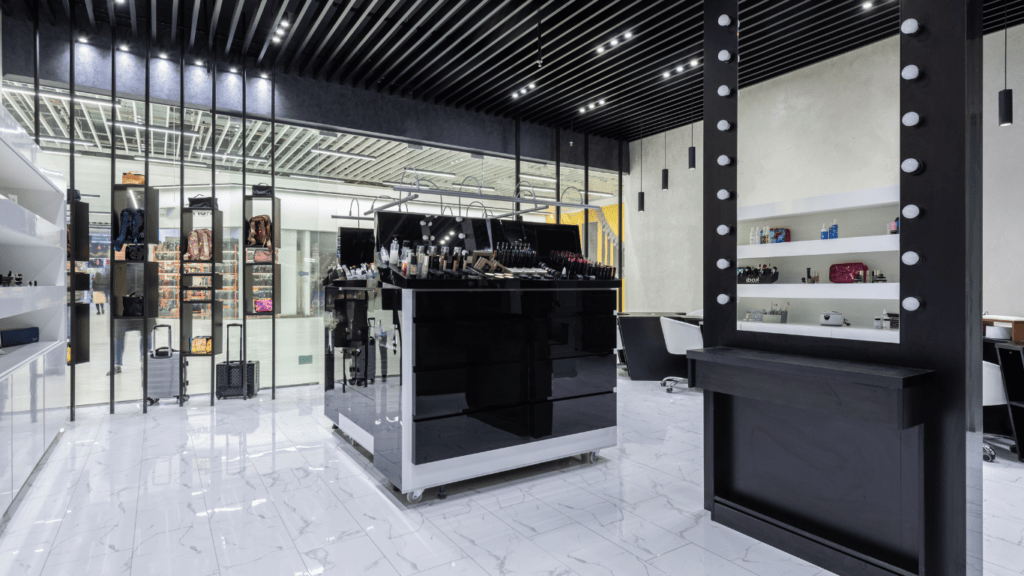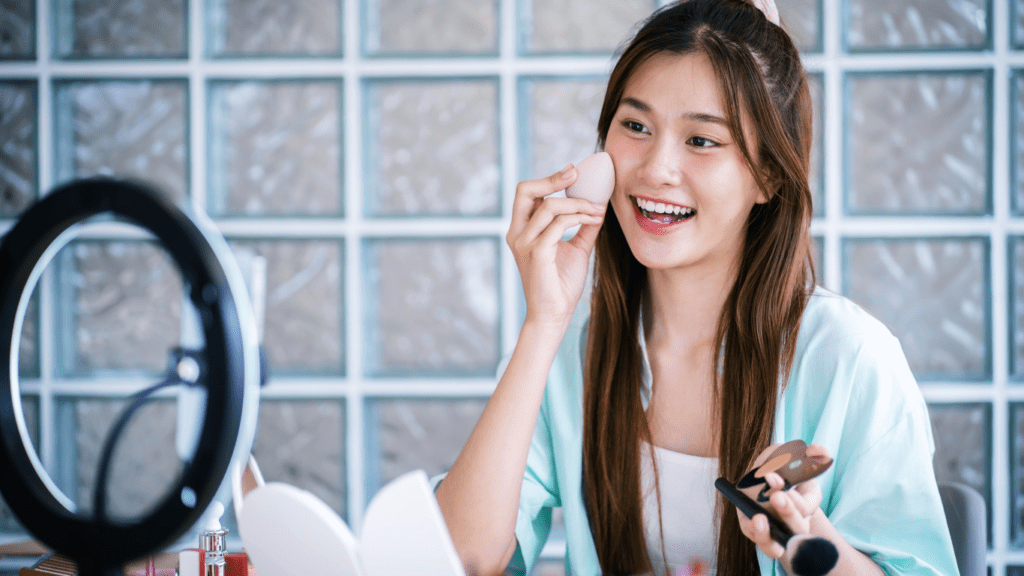Understanding AI in Beauty Shopping
AI revolutionizes the beauty industry, making shopping experiences more personalized and convenient. It’s not just about technology—it’s about transforming how we discover and purchase beauty products.
What is AI?
AI, or Artificial Intelligence, refers to computer systems that can perform tasks typically requiring human intelligence. These tasks include visual perception, speech recognition, decision-making, and language translation. In beauty shopping, AI can analyze vast amounts of data, predict trends, and offer personalized recommendations.
Role of Personalization in Beauty
Personalization tailors shopping experiences to individual preferences. AI-driven tools, like virtual try-ons and skincare analysis apps, provide customized solutions. For example, augmented reality apps let users see how different makeup products look on their faces before buying. Skin analysis apps recommend products based on unique skin conditions, enhancing satisfaction and reducing returns.
Benefits of AI in Beauty Shopping
AI offers significant advantages in beauty shopping. Let’s explore how technology enhances customer experiences and transforms personalization.
Enhanced Customer Experience
AI revolutionizes customer experience. Virtual try-ons let users see how products look on their skin before buying. Augmented reality (AR) apps simulate makeup applications in real-time. This gives customers confidence in their choices. Interactive chatbots provide instant assistance, answering product questions and offering personalized advice.
Personalized Recommendations
AI delivers highly personalized recommendations. Algorithms analyze user data, including past purchases and skin type, to suggest suitable products. For example, machine learning models recommend skincare routines based on individual needs. This boosts product satisfaction and reduces returns. Recommendation engines continuously learn from interactions, refining suggestions over time.
Efficient Inventory Management
AI optimizes inventory management. Predictive analytics forecast product demand, helping retailers stock efficiently. This reduces overstocking and minimizes out-of-stock scenarios. Automated systems provide real-time inventory updates, ensuring customers find what they need. Retailers save costs by aligning inventory levels with actual demand.
Technologies Driving Personalization
AI plays a crucial role in personalizing beauty shopping experiences by using several advanced technologies. These technologies help create tailored solutions that enhance customer satisfaction and streamline the shopping process.
Machine Learning
Machine learning (ML) algorithms analyze customer data to provide personalized product recommendations. By studying users’ past behaviors, preferences, and purchase patterns, ML predicts which products they’ll likely enjoy. For instance, Sephora’s “Color IQ” leverages ML to match foundation shades to individual skin tones accurately. This technology ensures customers receive product suggestions that align with their unique needs, improving their shopping experience.
Natural Language Processing
Natural language processing (NLP) enables chatbots and virtual assistants to communicate effectively with customers. These AI-driven tools interpret and respond to customer queries, offering personalized advice and product recommendations. For example, brands like Estée Lauder use NLP in their chatbot services to guide users through product selections based on their specific concerns, such as dry skin or acne. This interaction mimics a conversation with a knowledgeable beauty consultant, making the experience more engaging.
Computer Vision
Computer vision technology allows users to virtually try on makeup and see real-time effects. This AI capability analyzes facial features and skin conditions to offer accurate visual simulations. For instance, L’Oréal’s “ModiFace” app uses computer vision to let customers experiment with different makeup looks without physically applying products. Users can see how various shades of lipstick or eyeshadow will look on them, helping them make informed decisions and reducing the likelihood of product returns.
Case Studies of AI in Beauty Shopping
AI’s impact on beauty shopping spans many leading brands and reveals significant success stories.
Leading Beauty Brands Using AI

Many established beauty brands have integrated AI to enhance customer experiences:
- Sephora
Sephora utilizes AI with its “Color IQ” tool, which scans skin tones to recommend foundation shades. By using computer vision, it ensures precise matches, elevating personalization. - Estée Lauder
Estée Lauder’s chatbot offers personalized skincare advice based on user input through natural language processing (NLP), streamlining product selection and improving user engagement. - L’Oréal
L’Oréal’s “ModiFace” app uses augmented reality for virtual try-ons, allowing customers to visualize products before purchasing. This application bolsters confidence and reduces return rates.
Success Stories and Impact
Several brands have reported notable successes with AI:
- Olay
Olay’s “Skin Advisor” platform analyzes selfies using machine learning to provide personalized skincare routines. This innovation resulted in higher customer satisfaction and increased sales. - MAC
MAC’s AI-driven virtual try-on feature empowered users to test various makeup looks instantly. Following its implementation, conversion rates improved, showcasing the effectiveness of AI in driving sales. - Yves Saint Laurent
Yves Saint Laurent’s shade-matching foundation tool incorporates AI for exact matches. The tool’s accuracy reduced mismatched purchases, enhancing customer trust and loyalty.
Challenges and Ethical Considerations
AI’s integration into beauty shopping brings challenges and ethical considerations. Key issues include privacy concerns and potential bias in AI algorithms.
Privacy Concerns
Protecting user data remains a significant challenge. AI systems collect vast amounts of personal data (e.g., skin type, product preferences, and facial features). This data helps create personalized experiences but poses privacy risks. If improperly handled, this data can be misused or compromised. Companies must commit to stringent data protection measures, including compliance with GDPR and CCPA regulations, to safeguard customer information.
Potential Bias in AI Algorithms
Bias in AI algorithms can affect the fairness and effectiveness of personalized recommendations. Bias occurs when algorithms inadvertently favor certain groups over others, potentially leading to unfair treatment. For example, a skincare recommendation engine might favor lighter skin tones, neglecting effective solutions for darker complexions. Organizations must ensure their AI systems are trained on diverse datasets to minimize bias, implementing regular audits and updates to maintain fairness and integrity.
Future Trends in AI and Beauty Shopping
The future of beauty shopping is poised for significant transformation, driven by advancements in artificial intelligence. Emerging technologies and predictive trends promise to enhance personalized experiences and redefine consumer interactions.
Emerging Technologies
Emerging technologies are already starting to reshape beauty shopping. AI-based skin analysis tools, such as Neutrogena’s Skin360, scan and evaluate skin conditions to recommend personalized skincare routines. These tools leverage machine learning to provide skincare advice that evolves with users’ changing skin needs.
Augmented reality (AR) continues to revolutionize the industry. Apps like YouCam Makeup allow users to virtually try on various makeup products, offering a realistic preview of how shades and styles will appear. This enhances the shopping experience by providing instant, visual feedback that helps users make informed choices.
Voice-activated virtual assistants are also gaining traction. Alexa-enabled smart mirrors offer beauty tips, product suggestions, and beauty news updates, integrating AI directly into daily routines. With their increasing sophistication, such assistants address individual user preferences and habits, making beauty regimens smarter and more convenient.
Predictions for the Next Decade
The next decade will likely see AI becoming even more embedded in beauty shopping. Predictive analytics powered by AI will forecast consumer preferences with unprecedented accuracy, enabling brands to preemptively stock trending items and minimize waste. This will optimize supply chains and enhance customer satisfaction by ensuring product availability.
Personalized marketing strategies will evolve, leveraging AI to deliver hyper-targeted advertisements. AI will analyze user behavior patterns and preferences to create bespoke marketing campaigns that resonate deeply with individual consumers, driving brand loyalty and conversion rates.
In-store experiences will undergo a revolution as well. Smart mirrors equipped with AR and AI will provide tailored product advice and tutorials, creating an interactive shopping experience. These mirrors will recognize individual shoppers and recall their past preferences, offering continuity in personalized service.
AI’s role in sustainability will also grow. By utilizing data to forecast demand and develop products tailored to specific needs, the beauty industry can reduce overproduction and waste. AI-driven solutions will help brands adopt more sustainable practices, meeting the rising consumer demand for eco-friendly products.
The future of AI in beauty shopping is set to offer increasingly personalized, seamless, and sustainable experiences, transforming how consumers interact with brands and products.





